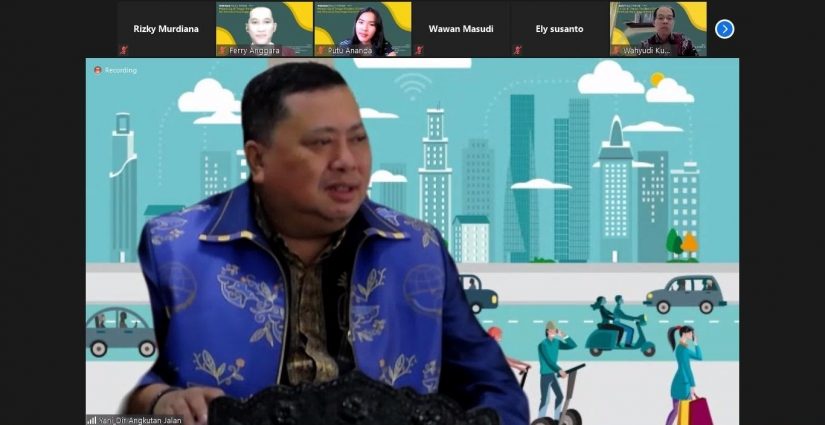
Yogyakarta, August 10th 2021─The Institute of Governance and Public Affairs (IGPA) of MAP Universitas Gadjah Mada held a Webinar Policy Forum with the title “Gig Workers in the Midst of the Covid-19 Pandemic: From Work Vulnerabilities to Policy Alternatives”. This event was held online by presenting quite interesting speakers, such as Ahmad Yani as the Director General of Land Transportation of the Ministry of Transportation of the Republic of Indonesia, Prof. Ari Hermawan, and Media Askar Wahyudi as the academics of UGM, and representatives of Gojek drivers @kejo_Ojek. Even though it took place on a holiday, the enthusiasm of the discussion was high enough to be attended by 136 participants. The event, which was moderated by Fery Anggara, succeeded in exploring various dynamics of gig workers, especially online drivers in the midst of the COVID-19 pandemic. In addition, this event is also a joint forum to discuss the future of gig workers who are entitled to justice and legal guarantees in Indonesia.
Starting the webinar, the first speech was delivered by the Head of the Department of Public Policy Management (MKP), Wahyu Kumorotomo. In his speech he said that this forum is expected to be a discussion space that is able to produce solutions to the problems of gig workers in the midst of the COVID-19 pandemic. In line with the previous remarks, Wawan Mas’udi as the Dean of Fisipol UGM delivered the opening remarks. In his speech, he argues that the development of the industrial revolution 4.0 has opened up job opportunities with the emergence of the gig platform but on the other hand it has also resulted in a new structure in industrial relations related to the existence of partners and the need for legal guarantees for their welfare.

Entering the main event the material was delivered by the speakers. Starting with Ahmad Yani, he said that the problems faced by transportation gig workers were related to their status as partners. In this context, there are no clear arrangements regarding what kind of partners are meant to have an impact on welfare issues. Institutionally, the Ministry of Transportation seeks regulations but in fact it is not enough to deal with all existing problems. Therefore, a discussion forum with other ministries is needed to discuss solutions to common problems.
Connecting the previous speaker, the academic representative, Prof. Ari Hermawan and Media Askar, delivered similar and complementary materials. In general, the important point of the material from the two speakers is that the political and legal conditions in Indonesia are quite complicated. As a developing country, the dynamics of the gig economy in Indonesia is much more complex than that of developed countries. In this situation, as a civil law country, guarantees related to welfare and safety can be sought by producing legislation products that contain such matters. As a closing statement, Prof. Ari said that the government must be present in bridging these interests, the state must be present for the citizens and be able to produce anticipatory policies as solutions.
